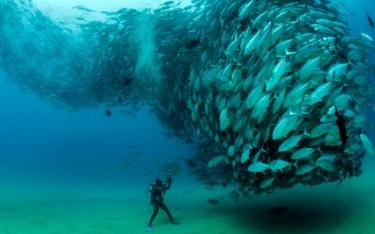- Home
- Dipartimento
- Ricerca
- Didattica
- Post Lauream
- Trasferimento della conoscenza
- Come fare per
Seminar @ DF - M. Durve - From bacterial colonies to schools of fish: the statistical physics of active collective behavior
Tipologia evento:
home
Sede:
Trieste
Collective behavior is seen in many natural and artificial systems. The flock of birds, the school of fish, growth of the bacterial colony on a petri dish, human crowd are examples of natural systems. Agents in such systems have ability to show persistent motion. The class of such system is also called `active systems' and the agents in such systems are called `Self-propelled particles'. Particularly in biological systems the collective behavior is essential for survival of the species. For example, the study shows that a group of fish can coordinate and find food more efficiently than an individual fish.
In this talk we shall discuss the examples of active systems and the computational approach to study the collective behavior in such active systems. There are various models that are proposed to understand the mechanism for the onset of the observed collective motion. We shall discuss one such model, now known as the `Vicsek model'. The model assumes that the agent in such systems try to follow it's neighbors. With this simple but yet effective assumption this model showed some of the prominent features of the collective behavior. We shall also discuss the effect of anisotropic interactions among the agents in such systems within the scope of the Vicsek model and its effects on the collective behavior.

Luogo:
Lecture Room A, via Valerio 2
Ultimo aggiornamento: 03-02-2017 - 17:11



